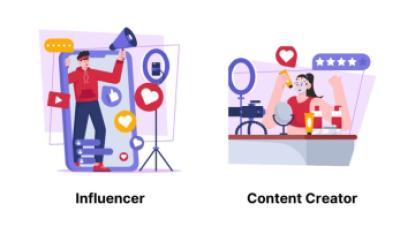Understanding Crowdfunding: A Comprehensive Guide
Crowdfunding is a revolutionary method of raising capital that enables individuals, startups, and organizations to obtain financial support directly from a large group of people, typically through online platforms. This process bypasses traditional financial intermediaries such as banks or venture capitalists, unlocking new opportunities for innovation and entrepreneurship. The concept has grown immensely in popularity and scope, transforming how projects, products, and causes gain support worldwide.
In essence, crowdfunding allows project creators and entrepreneurs to present their ideas to the public and solicit contributions, often in exchange for rewards, equity, or simply goodwill. This democratized approach to funding has opened doors for countless ventures that might otherwise struggle to secure capital, offering an inclusive and transparent model that benefits both creators and backers.
The Mechanics of Crowdfunding Platforms
Crowdfunding relies heavily on online platforms that facilitate the connection between fundraisers and supporters. These platforms provide a marketplace where projects can be showcased in detail, including descriptions, images, videos, and other promotional materials. They serve as intermediaries by managing the transaction flow, ensuring that funds are collected securely and distributed accordingly.
Backers browse these platforms to discover campaigns aligning with their interests or values. Once they choose a project to support, they contribute money via secure payment methods. Depending on the campaign model, contributors may receive rewards ranging from simple acknowledgments and merchandise to shares in the company or repayment with interest.
Types of Crowdfunding Models
Understanding the different crowdfunding models is crucial when planning a campaign, as each model caters to different types of projects, goals, and legal frameworks. The primary models include:
- Reward-Based Crowdfunding: This is the most common type, where backers receive non-monetary rewards, such as products, services, or acknowledgments, in exchange for their support. Kickstarter and Indiegogo are popular platforms employing this model.
- Equity Crowdfunding: Here, contributors gain an ownership stake or shares in the company or project. This model resembles traditional investment but is open to the general public. It requires adherence to securities regulations and often involves sophisticated due diligence.
- Debt Crowdfunding (Peer-to-Peer Lending): In this model, backers lend money to the project with the expectation of repayment plus interest. It operates like a loan and must comply with financial regulations related to lending.
- Donation-Based Crowdfunding: Supporters donate without expecting financial or material returns, typically used for charitable causes, emergencies, or community projects.
Key Factors for Successful Crowdfunding Campaigns
Launching and running a successful crowdfunding campaign requires careful preparation, clear communication, and continuous audience engagement. Several critical factors contribute to campaign success, including:
- Well-Defined Goals: Establish clear and realistic funding targets and articulate how the funds will be used.
- Compelling Storytelling: Narrate your project’s mission and vision in a way that resonates emotionally and intellectually with potential backers.
- Attractive Rewards or Returns: Offer incentives that motivate contributions while aligning with the project’s value proposition.
- Robust Marketing Strategy: Leverage social media, influencer partnerships, email marketing, and press coverage to reach a wide audience.
- Transparent Communication: Maintain open, honest, and frequent updates on campaign progress and challenges.
- Building Trust: Demonstrate credibility through testimonials, prototypes, endorsements, and professional presentation.
Choosing the Right Crowdfunding Model
Selecting the appropriate type of crowdfunding for your project is crucial for aligning your goals with the expectations of your audience and complying with legal standards. Consider the following when choosing a model:
- Nature of Project: Creative endeavors may benefit more from reward-based models, while startups seeking capital might lean toward equity crowdfunding.
- Regulatory Environment: Equity and debt crowdfunding require navigation of financial laws, which vary by jurisdiction and can be complex.
- Target Audience: Understand your potential backers and what incentives or involvement they desire.
- Fundraising Goals: Assess how much funding is needed and the feasibility of offering equity or debt instruments.
Legal Considerations and Compliance
One of the most critical aspects of crowdfunding is ensuring full compliance with relevant laws and regulations, particularly in equity and debt-based campaigns. Failure to adhere to legal requirements can result in penalties, campaign disruption, or loss of credibility.
Legal considerations include:
- Securities Regulations: Equity crowdfunding is subject to securities laws that govern investor rights, disclosures, and fundraising limits.
- Consumer Protection Laws: Ensuring transparency and truthful representations to avoid misleading backers.
- Tax Implications: Understanding how raised funds, rewards, or equity distributions are taxed for both creators and contributors.
- International Compliance: When campaigns attract global backers, understanding cross-border legal requirements is essential.
It is advisable to consult with legal professionals who specialize in crowdfunding and financial regulations before launching your campaign. Proper legal guidance helps mitigate risks and build confidence among your supporters.
Preparation: The Foundation of Crowdfunding Success
Thorough preparation is the foundation upon which crowdfunding campaigns thrive. This involves extensive planning, from project conception through delivery. Key preparation steps include:
- Researching Similar Campaigns: Analyze successful and unsuccessful campaigns to identify best practices and pitfalls.
- Developing a Prototype or Demonstration: Provide tangible proof of concept to enhance credibility.
- Creating Marketing Materials: Design compelling videos, images, and written content to attract and inform backers.
- Establishing Communication Plans: Schedule updates, prepare FAQs, and determine channels for engagement.
- Setting Realistic Timelines and Budgets: Ensure your campaign schedule and financial projections are achievable and transparent.
Engaging Your Audience Effectively
A crowdfunding campaign’s success is often a direct reflection of how well it connects with its audience. Engagement strategies include:
- Personalized Communication: Address supporters personally and acknowledge their contributions.
- Utilizing Social Media Platforms: Maintain active presence on platforms like Facebook, Twitter, Instagram, and LinkedIn.
- Hosting Live Events and Webinars: Offer Q&A sessions, demos, and interactive discussions.
- Encouraging Community Building: Foster forums or groups where backers can interact and share enthusiasm.
- Providing Regular Updates: Share milestones, setbacks, and next steps openly to keep momentum alive.
Post-Campaign Responsibilities
Completing your crowdfunding campaign is just the beginning. Delivering on promises and maintaining positive relationships are essential for reputation and future endeavors. Important post-campaign practices include:
- Timely Reward Fulfillment: Ensure that all backers receive the rewards or equity as advertised within the promised timeline.
- Financial Reporting: Keep transparent records of how funds were utilized.
- Ongoing Communication: Continue to update supporters on project progress and any challenges.
- Gathering Feedback: Learn from backers’ experiences to improve future campaigns.
- Legal and Tax Obligations: Address any compliance issues related to distributions or income generated.
When to Seek Professional Legal Assistance
Launching a crowdfunding campaign can involve intricate legal and financial issues, especially for equity and debt funding models. Engaging a qualified legal advisor ensures that your campaign:
- Meets all regulatory requirements.
- Protects intellectual property rights.
- Has clear terms and conditions to protect both creators and backers.
- Properly structures equity offerings or loan agreements.
- Mitigates risks related to fraud or misrepresentation.
If you require sound legal counsel tailored to crowdfunding and financing, do not hesitate to reach out through the communication channels provided in our bio or send a private message. Our experts at Legal Marketplace CONSULTANT are ready to assist you in navigating the complexities of crowdfunding successfully.
The Future of Crowdfunding
Crowdfunding continues to evolve alongside technological advancements and regulatory changes. Emerging trends for 2025 and beyond include:
- Integration of blockchain technology for enhanced transparency and security.
- Expansion of equity crowdfunding platforms with broader investor access.
- Greater emphasis on sustainability and social impact projects.
- Use of artificial intelligence to tailor campaigns and engage target audiences effectively.
- Stricter regulatory frameworks to protect investors and foster trust.
These trends indicate a promising landscape where crowdfunding will remain a pivotal tool for innovation financing, social change, and community empowerment.
Legal Marketplace CONSULTANT is a trusted legal company specializing in comprehensive legal services for businesses and individuals. Our team includes experienced lawyers, legal advisors, tax consultants, auditors, and accountants. We provide expertise in crowdfunding law and financial compliance to help you succeed safely and effectively.
Crowdfunding has transformed the financial landscape by empowering creators and communities to realize ambitious projects without relying on traditional financial institutions. Success in this space depends on choosing the correct funding model, understanding and complying with legal requirements, preparing thoroughly, and engaging sincerely with your audience. With expert legal assistance from Legal Marketplace CONSULTANT, you can confidently navigate the complexities of crowdfunding and unlock the potential to bring your ideas to life effectively and securely.































